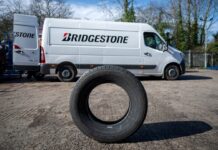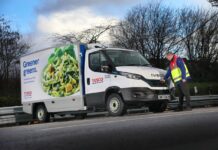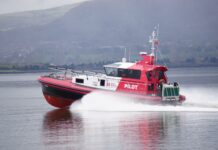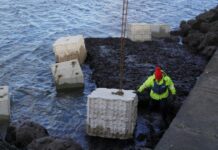FTA Ireland has welcomed the publication of the Irish government’s long-awaited Climate Action Plan, which outlines how the country should achieve a 51% reduction in Greenhouse Gas (GHG) emissions by 2030 and net-zero emissions by 2050. But, as Aidan Flynn, Chief Executive of FTA Ireland explains, for the freight sector to attain these goals, there is still much work to be done.
“Our industry remains fully committed to the net zero target set out at the COP26 climate conference in Glasgow,” he explains, “but there are barriers to achieving this goal which our industry will need help with from the administration. Which low-emission vehicles are to be preferred is a key consideration – investment in a fleet of new HGVs can run to hundreds of thousands of Euros – and the industry needs to know which fuel type is to be preferred.
While the government’s ambition may be for 3,500 low emission vehicles to be on the roads by 2030, more support is required to assist the industry’s transition, not least when you consider there are only 60 CNG trucks currently on our roads and a further 60 waiting to go into operation. Do manufacturers have the capacity to supply the necessary vehicles in time for the 2030 deadline?
 “The renewal of a fleet is an expensive and time-consuming process, and one which relies upon a suitable second hand market being available for vehicle sales. If existing vehicles are to be made obsolete, will some sort of scrappage rebate be available for our members? If not, they are simply being made to bear the total cost of the government’s environmental ambitions, which is unfair.”
“The renewal of a fleet is an expensive and time-consuming process, and one which relies upon a suitable second hand market being available for vehicle sales. If existing vehicles are to be made obsolete, will some sort of scrappage rebate be available for our members? If not, they are simply being made to bear the total cost of the government’s environmental ambitions, which is unfair.”
As Aidan continues, the main consideration for vehicle operators at present is which alternative fuel to opt for when moving to a net zero future:
 “A comprehensive, accessible refuelling network is a key priority, whichever fuel type is preferred. For example, the government has already failed on its ambition to deliver the Causeway Project which was supposed to have delivered 14 public CNG refuelling service stations by the end of 2020 – to date, only five are operational. With the levels of investment involved in replacing Ireland’s existing fleet with low emission alternatives, our sector needs commitment from government that it will have a suitable refuelling network in place in time, and that the cost of fuel will not be prohibitive, in order to be confident to make the switch.”
“A comprehensive, accessible refuelling network is a key priority, whichever fuel type is preferred. For example, the government has already failed on its ambition to deliver the Causeway Project which was supposed to have delivered 14 public CNG refuelling service stations by the end of 2020 – to date, only five are operational. With the levels of investment involved in replacing Ireland’s existing fleet with low emission alternatives, our sector needs commitment from government that it will have a suitable refuelling network in place in time, and that the cost of fuel will not be prohibitive, in order to be confident to make the switch.”
At the same time, FTA Ireland’s members have made submissions to government to help offset the rising operational costs which the sector currently faces as it helps the economy recover after the COVID-19 pandemic.
“Our members have already made huge strides along the road to Net Zero, saving over 4,618 tonnes of CO2 by introducing a documented fuel management programme across the industry. We now need government to take steps to help us to transition, by changing the fuel rebate programme to accommodate alternative fuels such as CNG and LNG and encourage businesses to switch. At the same time, we have outlined steps to be taken on the allowable diesel rebate programme to make alternative fuels more attractive, and support hydrotreated vegetable oil (HVO) as a viable fuel source which offers reductions through lower excise duty.
“Our industry is flexible and focused on achieving a Net Zero future, and now needs the commitment of government to engage in working through the practical issues we face. Together, we can ensure that the plans for the future are not merely aspirational, but also actionable.”
The government’s Climate Action Plan can be viewed here: https://www.gov.ie/en/publication/6223e-climate-action-plan-2021/















